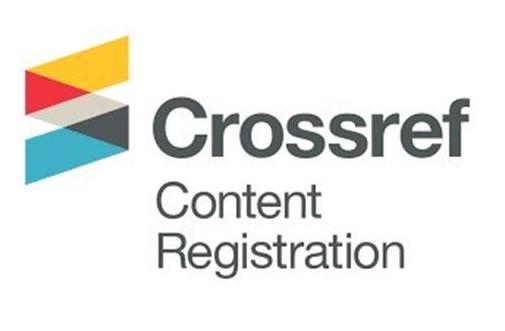Teacher education: A third revolution?
DOI:
https://doi.org/10.24840/esc.vi67.777Keywords:
Teacher professional knowledge, Normal schools, Teacher education, Teacher professionality, UniversitiesAbstract
This article suggests the possibility of a third revolution in the field of teacher education. In the first part, after mentioning the time of Normal schools (mid-nineteenth century) and universitarization (mid-twentieth century), it argues that teacher education should be thought of as professional education at university level. In the second part, dichotomies are avoided and a synthesis is proposed around valuing professional teaching knowledge (a third kind of knowledge), recognizing school teachers as the educators of new teachers (a third actor) and building a common home for teacher education and the profession (a third place). With these elements, laying the foundations for a third revolution in teacher education may be possible.
Downloads
References
Étienne, Richard, Altet, Marguerite, Lessard, Claude, Paquay, Léopold, & Perrenoud, Philippe (Eds.). (2009). L’université peut-elle vraiment former les enseignants ? Quelles tensions? Quelles modalités? Quelles conditions? Bruxelles: De Boeck.
Ferry, Gilles (1987). Le trajet de la formation. Dunod.
Jankélévitch, Vladimir (1968). Traité des vertus. Bordas/Mouton.
Larrosa, Jorge (2019). Esperando no se sabe qué sobre el oficio de profesor. Candaya.
Latour, Bruno (2010). Cogitamus: Six lettres sur les humanités scientifiques. La Découverte.
Lessard, Claude, & Bourdoncle, Raymond (2002). Qu’est-ce qu’une formation professionnelle universitaire? Conceptions de l’université et formation professionnelle. Revue Française de Pédagogie, 139, 131–153. https://www.persee.fr/doc/rfp_0556-7807_2002_num_139_1_2889
Lessard, Claude, & D’Arrisso, David (2010). L’universitarisation de la formation des enseignants. Recherche & Formation, 65, 31–44. https://doi.org/10.4000/rechercheformation.127
Meirieu, Philippe (2003). 1983–2003: Vingt ans après. Meirieu. http://www.meirieu.com/PREFACES/ferry.htm
Niza, Sérgio (1997). Formação cooperada. Educa.
Nóvoa, António (2009). Professores: Imagens do futuro presente. Educa.
Nóvoa, António (2017). Firmar a posição como professor, afirmar a profissão docente. Cadernos de Pesquisa, 47(166), 1106–1133. https://doi.org/10.1590/198053144843
Nóvoa, António (2023). Professores: Libertar o futuro. Diálogos.
Nóvoa, António, & Alvim, Yara (2022). Escolas e professores: Proteger, transformar, valorizar. Instituto Anísio Teixeira.
Ravitch, Diane (2013). Reign of error: The hoax of the privatization movement and the danger to America’s public schools. Alfred A. Knopf.
Ribeiro, Darcy (1984). Nossa escola é uma calamidade. Salamandra.
Ribeiro, Darcy (1994). Educação pela têvê: Catálogo de programação. Secretaria Extraordinária de Programas Especiais, Governo do Estado do Rio de Janeiro.
Steiner, George (2005). Lições dos mestres. Gradiva.
Thompson, Greg (2021). The global report on the status of teachers 2021. Education International.
Ulferts, Hannah (Ed.). (2021). Teaching as a knowledge profession: Studying pedagogical knowledge across education systems. OECD.
UNESCO. (2020). World teachers’ day 2020 fact sheet. UNESDOC. https://unesdoc.unesco.org/ark:/48223/pf0000379187
UNESCO. (2021). Reimagining our futures together: A new social contract for education. UNESDOC. https://unesdoc.unesco.org/ark:/48223/pf0000379707
Verger, Antoni, Lubienski, Christopher, & Steiner-Khamsi, Gita (Eds.). (2016). World yearbook of education 2016: The global education industry. Routledge.
Zeichner, Ken (2012). The turn once again toward practice-based teacher education. Journal of Teacher Education, 63(5), 376–382. https://doi.org/10.1177/0022487112445789
Zeichner, Ken (2017). The struggle for the soul of teacher education. Routledge.
Downloads
Published
How to Cite
Issue
Section
License
Copyright (c) 2024 António Nóvoa

This work is licensed under a Creative Commons Attribution-NonCommercial-ShareAlike 4.0 International License.
Authors retain copyright, without restrictions, in their articles and grant the journal right of first publication with the work simultaneously licensed under Creative Commons Attribution ShareAlike Licence 4.0 International (CC BY-NC-SA). Readers are free to copy, display, distribute, and adapt an article, as long as the work is attributed to the author(s) and ESC, the changes are identified, and the same license applies to the derivative work. Only non-commercial uses of the work are permitted.








